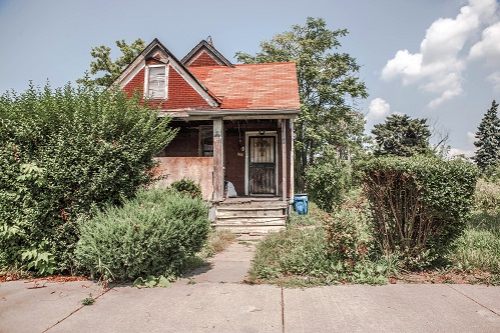Why would a home insurance claim be denied?
Most claim denials are because the damage is excluded by the policy. For example, after Hurricane Ian, many claims were denied because flood damage is not covered by homeowners insurance. Homeowners insurance generally does cover wind damage. However, hurricane insurance coverage can vary, and a secondary deductible often applies.
Samantha Bequer, a spokesperson for the Florida Office of Insurance Regulation, says the office wants insurance companies to live up to their commitments to homeowners.
"OIR expects insurers to do everything possible to respond to the needs of impacted Floridians," she says.
In many hurricane cases, disputes over claims center on damage caused by flooding, Mark Friedlander, director of corporate communications for the Insurance Information Institute says.
“If you don’t have flood insurance, the windstorm coverage in your standard property insurance property will not cover the loss.”
Hurricane claims aren't the only situation in which a claim might be denied, and the insurance company isn't always right.
How to avoid having a homeowners claim rejected
Any homeowner can run into problems when filing a claim. In some cases, the dispute is easy to fix.
For example, simply providing your insurer with more information can sometimes resolve it.
"Consumers should first provide the insurer with damage estimates or additional documentation to support their claim," Bequer says.
In fact, failing to document a claim properly is a major reason why claims are rejected, says Joe Tolzmann, CEO of RocketPlan, a software-as-a-service platform for property restoration insurance professionals and contractors.
"Improper documentation leads many claims to be delayed or rejected," he says, adding that missing or incorrectly filed paperwork can lead to the denial of a claim.
If your claim is rejected, Tolzmann recommends contacting your insurance company to determine if documentation is missing.
He says doing so can pay off even in situations where it might seem like getting a claim approved is unlikely, such as when water damages the residence of a homeowner who does not have flood insurance.
"Homeowners can argue that the damage was caused in another way," he says. "If they can provide more documentation to back that up, the insurance company should take a second look at the claim."
What to do when homeowners insurance denies your claim
If your insurer rejects your claim, you can continue pursuing payment.
Your first step is to work with your insurer to resolve the dispute. The same applies to a settlement that is too low.
"Consumers are encouraged to work closely with their insurance company and agent if they feel they have been wrongfully denied or unfairly compensated regarding a claim," Bequer says.
You can often appeal your insurer’s decision by building a case with additional documentation that your claim is legitimate and should be paid.
How to appeal a homeowners insurance claim denial
Your insurance company will have an appeals process in your policy documents explaining what you need to do to appeal the denial. Follow those steps to start your appeal.
You should appeal as soon as possible; don't wait and hope the insurance company will reverse the decision on its own.
How to fight a denied homeowners insurance claim
If you still can’t resolve the dispute, reach out to your state insurance department and learn more about how you should proceed.
The National Association of Insurance Commissioners lists state insurance departments on its website.
If you still cannot resolve the matter satisfactorily, other options can include hiring a mediator or a public adjuster or filing a lawsuit to get your claim paid. But these can be time-consuming and sometimes expensive options, and you might not get the desired resolution.
Does a denied home insurance claim count against you?
It might. Every claim you file goes on record, and even if the insurance company didn't pay out on the claim, it will still be listed.
If you have filed too many claims, you might find it harder to get insurance or find that your rates go up over time.
Do you have the right home insurance coverage?
Having the right coverage before a disaster occurs is also crucial to avoid a rejected claim. Friedlander says it is “very common” for homeowners with damage related to flooding or earthquakes to have claims rejected because their homeowners policy just doesn’t cover the damage.
He notes that just 4% of U.S. households nationwide have flood coverage. “You don’t need to live in a designated flood plain to suffer a catastrophic flood loss,” Friedlander says.
Sewer backup is another type of damage that homeowners insurance might not cover unless the homeowner specifically purchases such coverage.
“This coverage is typically added to a standard policy via endorsement and is essential for homes with a basement,” Friedlander says.
Finally, it is important to remember that in some cases, you may not receive a payout from your insurer because the damage is below your deductible.
"If you have a $2,500 deductible and your loss is estimated at $2,000, the insurer will not pay you anything for the damage," Friedlander says.




